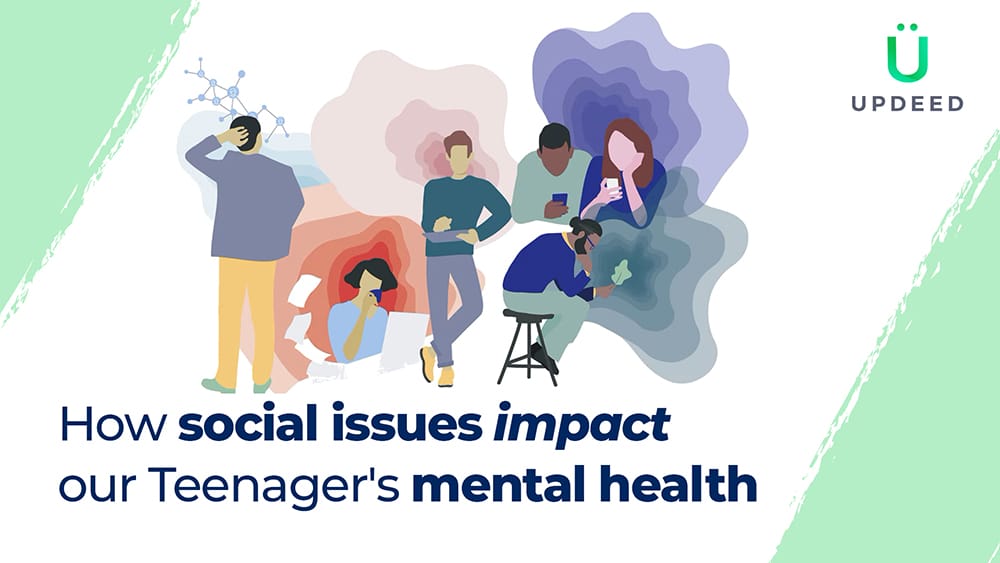How social issues impact our teenager’s mental health
A child’s mental health is equally as important as physical health, particularly when controlling stress, behaviour, and academic success. In today’s world, we are experiencing rapid changes in technology advancements. With such advancements, modern teenagers have to deal with various societal difficulties.
Have you observed your teen exhibiting signs of concern about school, friends, dating, or even small issues at home? Do your teen’s self-doubts occur frequently? Does your teen struggle to complete their assignments or duties on time? Is your kid experiencing shyness?
Teenagers are more prone to social issues in comparison to adults. The reason is simple – in teenage, the brain is still developing, and they experience quick body changes. Teenagers’ emotional and physical health may be impacted by what we could call “teenage troubles.”

Adolescence, also known as the teenage years, is a period of incredible transformation. Children at this age start to acquire a strong desire to gain some independence as they start witnessing the transition into young adults, shifting their attention from being focused on education, play, and getting their parents’ and friends’ approval.
Their bodies are changing quickly, and their emotions and cognitive abilities are also growing. Challenges specific to these changes include eating problems, risk-taking behaviour, and mental and behavioural issues.
A child’s mental health is equally as important as physical health, particularly when controlling stress, behaviour, and academic success. In today’s world, we are experiencing rapid changes in technology advancements. With such advancements, modern teenagers have to deal with various societal difficulties.
Take, for instance, due to their dependence on technology; many teenagers lack basic interpersonal communication skills like the ability to read social signs.
Large-scale social problems can have a negative impact on how well a society runs. Teens’ use of social media and texting alters how they learn, communicate, date, sleep, and exercise, among other things. The typical teen uses electronics for more than eight hours every day.
Need to play our part
We need to act fast. As parents, it is our responsibility to support their emotional needs and be alert to any changes in their behaviour so that they can grow. But, above all, we must be emotionally available to them and attentively present for them as they move through this trying time in their life.
Similarly, your love and care for them and the quality of your relationship with them can significantly improve their mental health. It might even make your youngster less likely to experience mental health problems.
Children exposed to holistic well-being practises and behaviours such as mindfulness, exercise, healthy eating, expressing appreciation, and cultivating empathy may find it easier to handle life’s stresses.
Take advantage of your time as a family and one-on-one with your child, and let them talk to you about their feelings. Your child needs to realise that they are not required to deal with life’s difficulties independently. If you work to find solutions, you can stop things from worsening.
Make your child understand that it is worth talking to trusted family members, friends, parents, or teachers if they face any issues. Even if they need a little extra help, one must not shy from going to a doctor.





